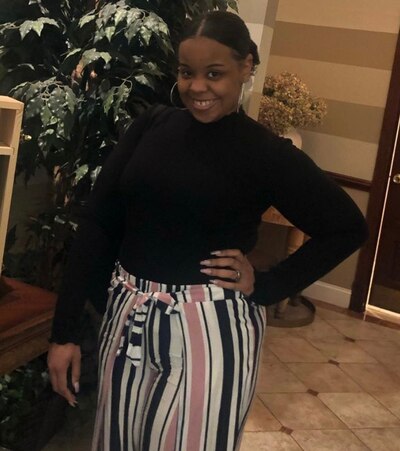Growing up, I was an A student. My grandfather skipped a grade; so did my mother. With the baton handed to me, I made the honor roll, joined honor societies, played instruments, sang, and took part in a range of extracurricular activities. Blah blah blah.
Many years later, I began working at an organization that assists students reading below their grade level. Some of them were not properly taught how to read or hadn’t received the additional help they needed from their schools. Many of my students have IEPs or have signs of dyslexia.

What many people take for granted, like being able to properly read a menu at a restaurant or decode a popular children’s book, is difficult for most of my students. Imagine looking at these very words and not understanding what I’m saying. Or imagine going to another country and being expected to excel without knowing how to read or write in the native language.
Knowing all of this, I studied the content. I practiced what I would say, how I expected the students to respond, and how I would explain any difficult points in the lesson. I was ready! But after multiple sessions of teaching literacy, my students would stare blankly at me, telling me that they just didn’t know the answer. My teacher’s training courses did not prepare me for what would happen when a lesson failed, when my students didn’t get it, or even when I felt like giving up.
But reflecting on the situation with my therapist, I realized that I was missing a critical component: empathy for my students. I couldn’t relate to academics being hard because I never really did anything too hard for me. Growing up with performance anxiety, I avoided activities I hadn’t mastered, snarling at anything that took additional skills, lessons, or effort. And so, I never really experienced how hard trying something new could be. Acknowledging this was the first step.
In my job, I am constantly faced with students not wanting to read because they know they struggle with it. They have mastered the art of deterring conversation or squirming themselves out of reading activities, so they don’t have to face what they find so hard to do.
Each session, my students learn or review new ways to tackle this huge mountain we call literacy: learning how to tap out sounds with their fingers, make out different sound combinations, and break down sentences to find the author’s meaning. We come together to read, and they are expected to try their best and face something difficult for them.
My teacher’s training courses did not prepare me for what would happen when a lesson failed, when my students didn’t get it, or even when I felt like giving up.
Admittedly, it took some time before I knew how to empathize with them. I sat down and created a list of things I had procrastinated on because it was too hard for me: learning how to drive, starting my business, and networking with other professionals. I picked something off the list and decided to write out practical tips for working through it. Writing it out was easy; taking my own advice was harder. My students were my accountability partners; I was theirs. We would work through our respective hardships because we had a deal.
Now, when I go to teach my students, I acknowledge how hard reading, writing, and comprehending their favorite book may be for them. I acknowledge that what comes easy to me may be difficult for them – and vice versa. We all struggle with something.
I often tell my students to remind themselves, “I can do hard things.” I use this affirmation to encourage them to tackle some of the roadblocks they have when reading. This affirmation started to come alive when I finally decided to try things that, for years, had been extremely difficult for me. Every time I wanted to quit, I reminded myself of my struggling students who do not get to quit.
Their continual bravery to show up and practice their reading skills inspires me to help them learn, to break down lessons into even smaller parts, and to do whatever it takes. I want them to understand that while some things may seem insurmountable, they probably aren’t. We can all do hard things … including me.
Brianna Robles was born and raised in Brooklyn and believes New York City is the best city in the world. Her background is in early childhood and special education. She currently works as a literacy teacher and conducts small groups for students who are suspected of having dyslexia. Outside of the classroom, you can find her performing at poetry slams and laughing at jokes she made herself.

